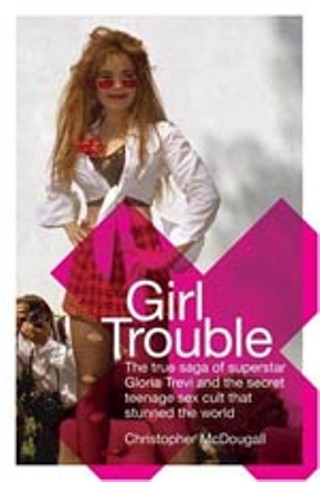Rock & Roll Books
Gift guide
By Margaret Moser, Fri., Dec. 3, 2004

Rockpile
Although the blockbuster Dylan biography dominates the season's rock & roll books, there are dozens and dozens more of note, including another half-dozen titles here. The least notable is Bad Music: The Music We Love to Hate, edited by Christopher J. Washburne and Maiken Derno (Routledge, 366 pp., $24.95, paper). This collection of essays is a remarkably dry approach to a topic rich with irony and humor. That Routledge is a primarily academic publisher is the clue that this pricey paperback isn't for the masses. Here's a quote from Joe Carducci in Deena Weinstein's "Rock Critics Need Bad Music": "Rock writers have ignored the reality of rock – the music – in an attempt to promote their sociopolitical hegemony over the intellectual life of the pop medium." Weinstein is addressing heavy metal, but Carducci's comment, while true, layers on the academic babble that's dogged the pleasure of listening.
Unless you're an aficionado of Eighties international pop artists, Gloria Trevi probably didn't cross your radar. Yet Girl Trouble: The True Saga of Superstar Gloria Trevi and the Secret Teenage Sex Cult That Stunned the World by Christopher McDougall (Rayo Books, 288 pp., $24.95) is as sordid as it is horrifying. The story of Trevi's manipulated rise to fame as a Mexican singing star in the late Eighties is as grim as the subject – she recruited teenage girls for her producer-lover and turned a blind eye to their rape, abuse, and kidnapping. McDougall's well-researched tale of Trevi's scandalous trials and prison time is alternately lurid and repellent, but not a particularly satisfying read.
As an antidote, The Rocklopedia Fakebandica by T. Mike Childs (Thomas Dunne Books, 244 pp., $14.95) makes for great light reading. The book's billing as "the comprehensive reference guide to fictional bands and singers from television and movies from the 1950s to today" says it all, as you'll find Spinal Tap, the Commitments, and the Partridge Family filed with Sweet Sue & the Synchopators, Phoebe Buffay, and Lili Von Shtupp. Fakebandica freely admits its limitation and incompleteness, thereby freeing itself from the tethers of trivia freaks looking to trip it up.
Da Capo Best Music Writing 2004 by Paul Bresnick, the series editor, and Mickey Hart, a guest editor (Da Capo, 360 pp., $15.95), is an annual compendium of criticism on rock, hip-hop, jazz, pop, country, and more, though its annual boast of "the best" is always somewhat questionable. When it's good, it's very, very good (Michael Corcoran's excellent "Blind Willie Johnson"), but when it's bad, it's boring (Jessica Hopper's convoluted "Emo"). Still, Chuck Klosterman's "6557 Miles to Nowhere" from Spin is a riveting treatise of his journey of rock & roll death sites. There's Nancy Spungen's bloody death at NYC's Chelsea Hotel, the Great White barbecue in Rhode Island, the lonesome Mississippi swamp where Lynyrd Skynyrd's plane crashed, and the greenhouse site in Seattle where Kurt Cobain closed his eyes and sucked on the barrel of a shotgun. It's unsettlingly good.
Cobain's bandmate Krist Novoselic tackles political apathy among youth with Of Grunge and Government: Let's Fix This Broken Democracy! (RDV/Akashic Books, 104 pp., $9.95, paper). The slim, earnest volume is half autobiography and half call to arms, written in Novoselic's intelligent, even tone. His social conscience and political commitment to everything from electoral reform to community issues makes one thing clear: If Hollywood can spin stars into government positions, it's high time rock & roll began doing the same. Kinky Friedman for governor!
Dixie Lullaby: A Story of Music, Race, and New Beginnings in a New South by Mark Kemp (Free Press, 296 pp., $26) is likewise part memoir, part rumination. Kemp, however, sees the rise of Southern rock as nonapologetic equalization for the generations that came after desegregation. That's not unusual; Lucinda Williams, REM, Steve Earle, and the Drive-by Truckers bridge that gap in their music, but literature hasn't caught up with it until Dixie Lullaby. Moving past cornpone accents and shotgun mentality, Kemp embraces the region's imperfections as well as its strength and instills an unapologetic sense of pride and accomplishment in those of us who made the journey before and after he did.







